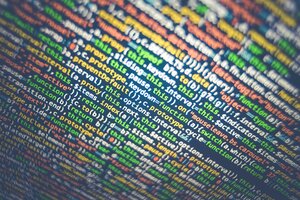Course: Digital Ethnography (SIMM35)
7.5 credits
The course is based on a digital ethnographical approach in order to study how social interaction and social worlds today are played out in online and offline environments. This means that traditional social scientific concepts and distinctions are articulated in new ways.
Digital ethnography focuses on the various ways in which social interaction and social worlds intersect across online and offline environments. This approach uses various qualitative ethnographic methods to critically reflect on traditional social scientific concepts and distinctions and how these are articulated in new ways within contemporary everyday lives. A key aspect of this course is that the digital is understood as an expansion of spaces where everyday lives are played out, as well as something affecting the way the ethnographer conducts research. In such a way, digital ethnography highlights not only what we study, but how we study it.
The practice-led course follows the inductive and iterative principle of ethnographical methods, beginning with concrete methodological practices and the craft knowledge of qualitative research. The first part of the course is devoted to digital ethnographical practices, such as observation and multi-modal textual analysis of digital media forms. From this starting point follows fieldwork and analyses, structured in three parts: 1) selves and social interaction; 2) socialities and participatory collectivities; and 3) mobile phones. Overall, the course critically examines how digital ethnography offers a reflexive knowledge about the intersections between the online and offline world, subjective and material relations, and the interplay between the private and public spheres.
Highligths what we study, and how
Digital ethnography focuses on the various ways in which social interaction and social worlds intersect across online and offline environments. This approach uses various qualitative ethnographic methods to critically reflect on traditional social scientific concepts and distinctions and how these are articulated in new ways within contemporary everyday lives. A key aspect of this course is that the digital is understood as an expansion of spaces where everyday lives are played out, as well as something affecting the way the ethnographer conducts research. In such a way, digital ethnography highlights not only what we study, but how we study it.
Different methodological practices
The practice-led course follows the inductive and iterative principle of ethnographical methods, beginning with concrete methodological practices and the craft knowledge of qualitative research. The first part of the course is devoted to digital ethnographical practices, such as observation and multi-modal textual analysis of digital media forms. From this starting point follows fieldwork and analyses, structured in three parts: 1) selves and social interaction; 2) socialities and participatory collectivities; and 3) mobile phones. Overall, the course critically examines how digital ethnography offers a reflexive knowledge about the intersections between the online and offline world, subjective and material relations, and the interplay between the private and public spheres.


